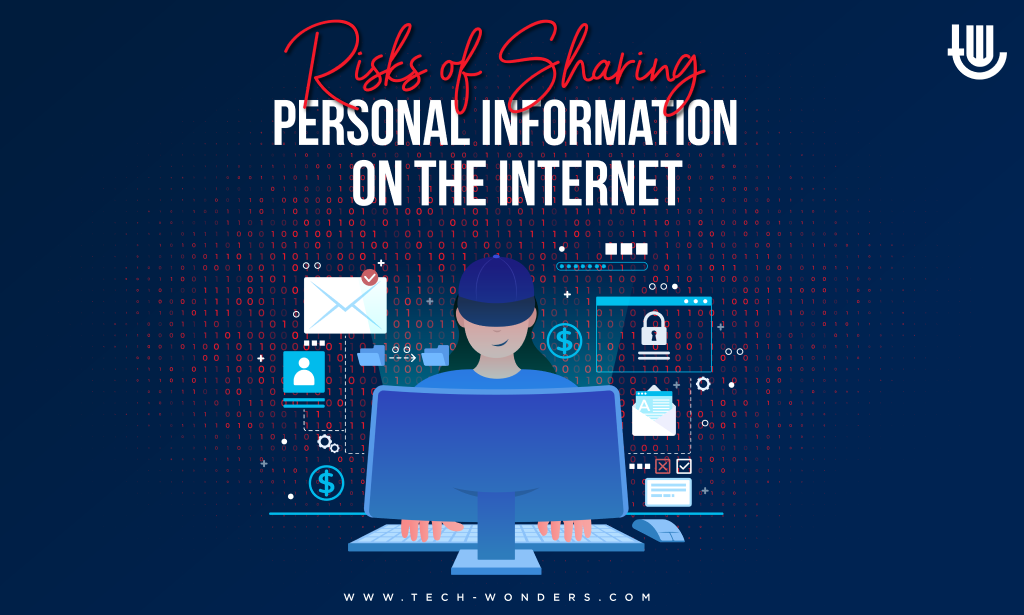With the surge in cybercrimes, we need to limit our activities so that we don’t give out a lot of personal information knowingly or unknowingly. Everything used to identify you is your Personally Identifiable Information (PII), and cybercriminals worldwide look for such accessible data sources for various purposes. Such data is essential to them, and often they’re sold at low prices, thus increasing the rise in attacks. Let us see what all impacts can happen when you give out your personal information over the internet.
What can happen when you give out your personal information?
We have mentioned the list of possible attacks that cybercriminals implement. We’ll also give different suggestions to help you eliminate the risk associated with it. Without wasting any more time, read on to know more.

Extracting Information
Once your name is known, it is easier to track your social media information and learn about your latest check-ins and where else you are actively posting. This paves the way to the most prominent issue, what we call impersonation. It is about creating fake profiles of an individual and then luring other people into their trap. This is one of the most common issues you’ll find happening with celebrities on social media.
Geographical Positioning
Some of the websites don’t strip down the essential metadata along with the pictures that we upload. This can reveal sensitive data such as geographical coordinates of where that picture was taken and devices used. Assuming that the image was uploaded and the meta-data was checked right at that moment, it can reveal the exact position of where a person may be, making him prone to further attacks.
Social Engineering
It is one of the most tactical ways to get a person to reveal sensitive information such as credentials and a company’s sensitive information to an attacker. Various books describe social engineering as an art in the field of hacking.
One of the proven and most commonly used methods, it’s as easy as someone calling you and deceiving you into revealing information. What goes as engineering that is associated with the people is notoriously called social engineering.
SMS Bombing and Fake Calling
Imagine a hurl of hundreds and thousands of SMS from different applications where you have never even signed up? Or another scenario where you get a call from some foreign country as some female executive, but the perpetrator is a man residing in the same locality?
This is what exactly happens when a user is a victim of SMS bombing and fake calling.
Certain people have a habit filling useless forms over the internet or in the malls for some lucky draw contests. But no one knows that this is the dark side of these contests apart from generating potential leads for marketing. Getting a fake call or a stream of hundred messages is enough to put any victim in a panic mode.
Password Guessing
We often make the simple mistake of putting a password lock with a combination of easily guessable attributes. It’s mostly a combination of our names, or spouses, or children, even pets. Such information can be grabbed from social media and used to make possible wordlists to hit the correct password that he is looking for.
Phishing or Spoofed Website
You often get links to websites that are not even original, but their overall user interface is a replica of it. That’s when you should know that you’re probably being targeted for a phishing attack. These websites can look precisely the same but might have non-recognized URLs, which are enough to raise a brow of suspicion. When you link on such websites, certain malware gets a chance to enter your device and run in the backend. It’s also often made to fool the users into entering credentials, assuming it is an actual website.
Scams and Frauds
Many people will often promise you to deliver certain goods at lower prices, and you end up being blocked from them. Such criminals provide lucrative offers that are hard to resist. But their intentions are prominently to loot the victims and eliminate all the traces to avoid tracking.
Inevitable payment fraud also occurs when the buyer pays you via payment portal and instead ‘requests’ for the same amount. The victim then approves the request to give the money instead of getting it. Everything happens due to carelessness and lack of awareness.
Techniques to save yourself from basic cyber crimes online
- The principal technique lies in being aware of the common frauds and methods hackers use to fool their victims.
- Always implement multi-factor authentications so that any unauthorized attempts would require your approval for logins.
- Identify certain traits of fake messages by careful inspection. Hackers often leave traces of mistakes that can save you from phishing.
- Always report to the police instead of paying fraudsters whenever suspicion arises.
- Be careful where you give out personal information. Any forms, links, or websites that are not necessary should not be entertained.
- Always invest in robust security measures such as antivirus, password managers, and endpoint security solutions. It’s always better to be safe than sorry!
- Any person pretending to be someone important and asking for anything termed as ‘sensitive’ should be immediately flagged and reported.
Towards the conclusion
As we have seen about all the possible attacks that can occur when you let out your sensitive information on the Internet, it is also essential to know that these methods don’t require special expertise. They can be carried out with little or no practice, and there are chances that they might succeed. It is essential to understand and implement the best measures to avoid letting out details that describe you. We never know what can be used to attribute towards you. Thus, it is rightly said, prevention is better than cure!

Author Bio:
This article has been written by Rishika Desai, B.Tech Computer Engineering graduate with 9.57 CGPA from Vishwakarma Institute of Information Technology (VIIT), Pune. Currently works as Threat Intelligence Researcher in CloudSEK. She is a good dancer, poet and a writer. Animal love engulfs her heart and content writing comprises her present. You can follow Rishika on Twitter at @ich_rish99.